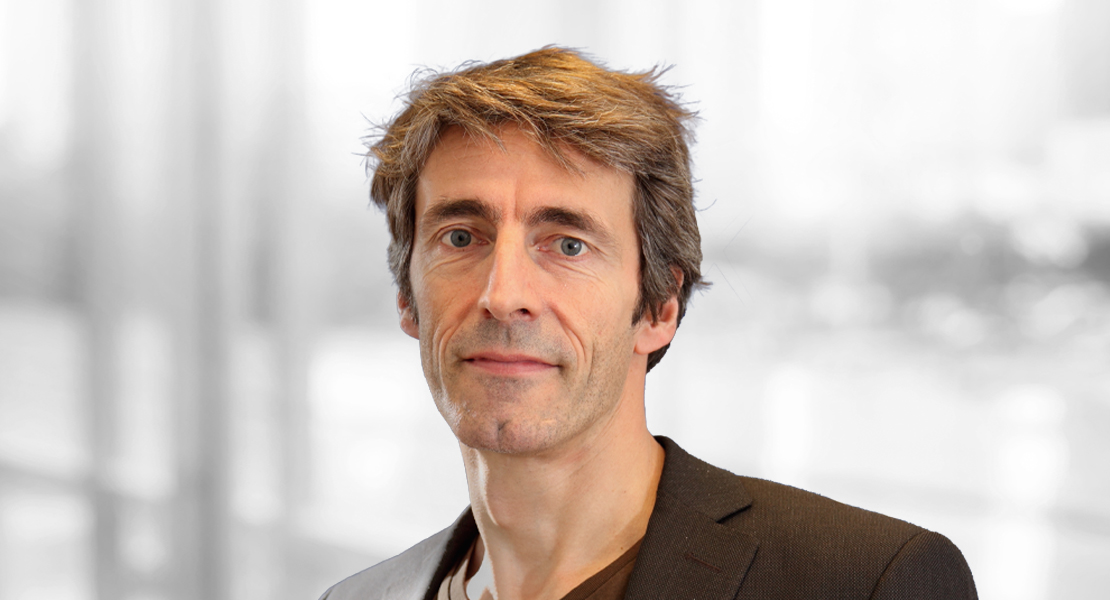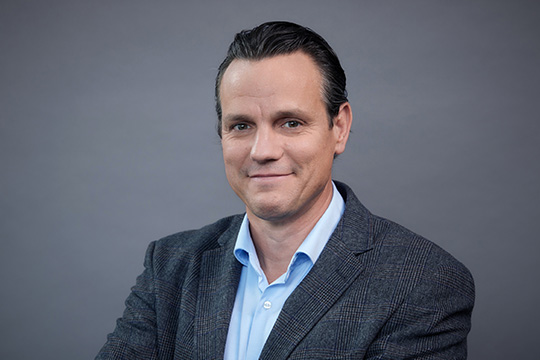Can entrepreneurship help to achieve ambitious sustainability goals? Dr. Martin Kupp, Associate Professor of Entrepreneurship and Strategy at ESCP Europe in Paris, urges science and entrepreneurship to break down the barriers between them and advocates exploiting the opportunities for the generation of power using nuclear fusion.
What is your perception of the state of affairs in business when it comes to innovative strength and entrepreneurship relating to sustainability?
A clear distinction should be made between the innovative power of established companies and entrepreneurship in the sense of startups. The innovative power of established companies is fundamentally geared toward optimizing existing products and processes. Sustainability in this context refers to the environmental friendliness of products or of the production process from cradle to grave. Startups usually work on new products for new target groups. And these new companies are equally aware of the significance of sustainability — sustainability impact funds, innovations such as impact receipts, and deep tech, which often addresses climate protection, are just some examples. The number of trained specialists in this area is on the rise.
The sustainable transformation of society and the economy rarely presents a positive narrative because of the magnitude of the efforts that are so often required. What is your viewpoint?
I see it much the same way. There are two possibilities. One, I solve the problem through the use of technology — this is where a positive narrative emerges such as when people optimistically say there are startups that will “save” our world by producing CO2-free energy. The alternative is to change our consumer behavior: the way and where we work, what we consume, where we shop — a narrative of restriction, sacrifice, and reduction. That is a difficult path for a sales narrative.
In consideration of the commonly held view that entrepreneurs tend to act and managers tend to deliberate and think, which approach is the more timely right now?
I agree that these two approaches both exist. However, now is the time for both. If a problem can be solved by thinking, it would be a huge mistake not to solve it by thinking. Yet there are also issues that are currently fraught with so much uncertainty that a solution cannot be found simply by thinking, no matter how profoundly. Uncertainty means that it is impossible to forecast the probable effects of an action. In such a case, the better option is to act. Actions themselves create facts, making it possible to foresee and impact what will happen in the future. Entrepreneurs often operate within a highly uncertain framework, so action really is the better way to think. On the other hand, thinking is a highly effective method whenever the environment is relatively stable. When operating as a company, you must decide where your project is heading, for example. Can thinking create a competitive advantage because certain aspects are predictable?
The discourse on sustainability in France differs from what we hear in Germany. You live in France — what are your impressions?
The topic of sustainability is fundamentally in vogue, and I can see that even among my students. Perceptions of certain issues differ, however. One example: Germany currently produces six times more CO2 per kWh of electricity than France. This is above all a consequence of the significant differences between the types of power plants operating in the two countries, of course. But the French are very proud of their power generation facilities.
Germany currently finds itself rather isolated in its view of nuclear energy, globally speaking. It used to be a simpler matter to condemn nuclear power, but upholding this standpoint has become more difficult because black-and-white arguments are no longer tenable. When arguments are based on CO2 emissions, no one will ever be convinced that nuclear power is bad. A shift in the discussion is currently taking place here — away from CO2 emissions and towards the lack of a final storage place for atomic waste.
You are involved in a startup that is exploring the development of nuclear fusion. What exactly is going on in this field?
Nuclear fusion is, so to speak, the opposite of the nuclear power currently in use; molecules are fused, not split, and energy is released in the process. The theory was developed as early as the 1920s and 1930s and has been the subject of research ever since. The significant advantage is the enormous energy density. Nuclear fusion produces a small amount of radioactivity or radiation, but this can be reduced even further to a level comparable to a hospital MRI by the use of technical solutions such as liquid metal walls. Renewable energy sources and nuclear fusion energy are complementary. A nuclear fusion power plant can commence operation very quickly when more energy is needed, for example.
There are numerous players working actively in the field of nuclear fusion. Why are you convinced that a startup can succeed on this market?
At the moment, I see above all large, publicly funded projects such as ITER or Wendelstein 7X while startups are their smaller cousins. In Germany, for example, we have the “Wendelstein 7-X” fusion plant, a stellarator model; this is the concept we are also pursuing. The ITER project in southern France is another project with international scope. Our startup stands on the shoulders of these giants, you might say. Now it is high time to think about the commercialization of this energy technology. This is not the task of public research institutes, however. Our mission as a startup is to develop a commercially viable concept and take it to market maturity. And we at Renaissance Fusion are not alone in this endeavor. There are about a dozen startups around us that are addressing this issue.
Is there any cooperation among the startups, or does each one focus on its own competition and marketability?
Collaboration is a key aspect of entrepreneurship. Everyone lacks resources, so it is advantageous to share with one another. Several US startups work very closely together; these relationships are not true alliances, but we talk intensively with one another. Fundamentally, we all share the conviction that the world needs fusion energy. No one knows which technical concept will prevail. And I am also convinced that in the long term different approaches will prove to be viable. But if there is a fundamental belief in a technological solution to the climate crisis, nuclear fusion will have to play a major role.
Public discussion in Germany almost never mentions the topic of fusion energy because skepticism is high. How would you counter this attitude?
We all live in our own bubbles, and in mine there is a lot of talk about fusion energy even in Germany. There are several examples, including the Max Planck Institute and its “Wendelstein 7-X,” a German startup called “Marvel Fusion,” and the University of Darmstadt — so something is happening.
By the way, I currently see a fascinating discourse in France that is very similar to what is heard in Germany — the opening of career paths from science to business via entrepreneurship. I still have the impression that these worlds remain too separated from each other. A top researcher must be able to point to top publications in top journals.
A startup is typically trying to commercialize something. This is often unattractive to scientists because the incentive systems do not yet work as they should. Attempts are now underway in France to make entrepreneurship palatable to scientists as a possible career path, encouraging researchers, for one, to think about possible commercialization at an earlier point in time and, for another, to involve the researchers as well in the commercialization.
This can be a truly exciting career path. This fluidity between the two areas is important, at least in anything that involves “deep tech.” We are moving quickly into these deep technologies in both sustainability and medicine. I think it makes good sense to break down the barriers between science and entrepreneurship.
Thank you for the interview!








